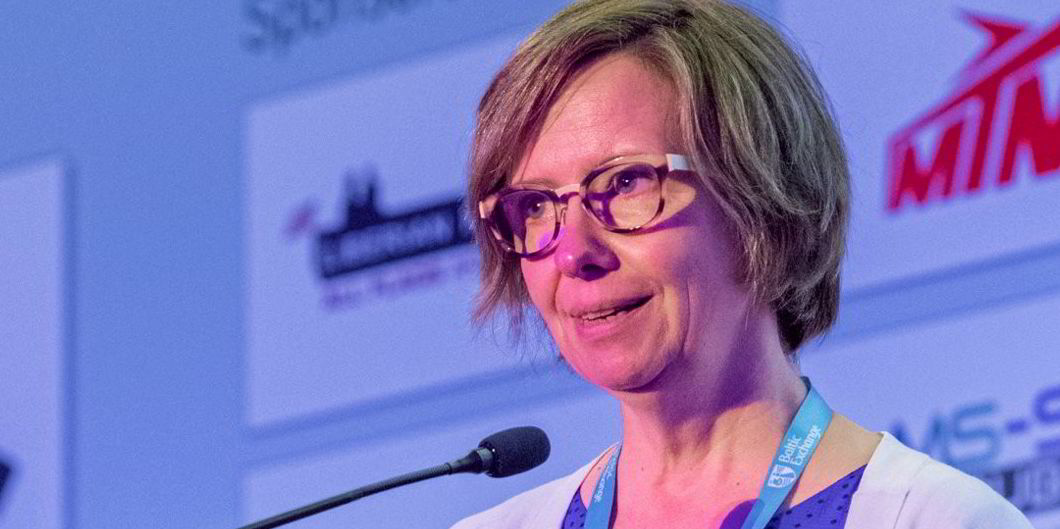Brussels has called on International Maritime Organization member states to deliver a strong and ambitious signal from talks in London over the next week to accelerate the decarbonisation of shipping.
The European Commission’s maritime policy head called on negotiators at the IMO’s Marine Environment Protection Committee (MEPC) talks to shape effective proposals that can be agreed as new global benchmarks next summer.
Speaking ahead of the MEPC79 meeting, Magda Kopczynska, director, waterborne, directorate-general for mobility & transport, told TradeWinds: “We do need a strong signal from this meeting that an agreement on an ambitious path towards decarbonisation of shipping can be signed off at MEPC80 at the latest.”
The IMO’s 175 member nations are meeting to negotiate key elements to reinforce global rules to cut carbon emissions from shipping: long-term reduction targets; medium-term practical, technical and economic measures; and more robust short-term rules and impact assessment.
Kopczynska said the commission hopes for several key outcomes from this month’s meetings.
“On the review of IMO’s strategy, the need to strengthen the level of ambition should be accepted and the shape of a possible set of compromises should become clearer,” she said.
“And on the different proposals for mid-term measures, an agreement to continue working on a combination of technical and economic elements that provide for an effective transition and emissions reduction, as well as on a methodology for properly assessing the impact assessment of such measures.”
IMO secretary general Kitack Lim said this week that he is hopeful of progress: “My own personal view is very optimistic. I believe we can deliver a just and equitable transition with no one left behind.”
Many environmental campaigners argue that shipping’s carbon reduction targets set in the last decade are inadequate and lack rigour or incentives.
Carbon emissions from shipping — although down around 17% from their peak in 2008 — rose last year and will rise again in 2022 due to a larger fleet carrying more cargo virtually entirely powered by fossil fuels.
Brussels has supported an ambitious revision of the IMO’s long-term strategy and has proposed that emissions should be phased out completely by 2050.
“We are aware that there are still different views among IMO member states, but we are convinced that meetings this week and next week would help to build support for this approach,” Kopczynska said.
“But the success should not be measured only with regards to the level of ambition agreed for 2050 but also when it comes to measures we agree upon that will help us to get to this target.”
The European Union has strongly advocated a technical measure — a fuel standard — that would create a framework for ships to change to alternative fuels use, without which decarbonisation of shipping will not be possible. “We should have a full life cycle approach when it comes to alternative fuels,” she added.
To improve the effectiveness of short-term measures, in particular the Carbon Intensity Indicator, Brussels has advocated increased transparency and comprehensiveness of the IMO Data Collection System.
Kopczynska said the role of economic incentives — market-based measures — would be vital.
“We have also put forward a submission on a possible combination of measures, to kick-start the discussion on specificities of a market-based measure, which we believe will be an indispensable element of a collection of measures which will have to be agreed upon if decarbonisation of shipping at the global level is to happen for real.”
She added that the return of human contact at physical meetings would help propel talks forward. “It is good to see that we are back to meetings face to face in the IMO, and I hope this will bring renewed — and positive — dynamics into the discussions.
“This month’s meetings are really a start of complex and multifaceted negotiations that will continue all the way to MEPC80 in July.”
Faig Abbasov, of campaign group Transport & Environment, said ahead of the talks: “Technology is ready to decarbonise shipping and the whole investor community is looking for the opportunity to produce sustainable fuels for ships.
“What is missing is a lack of guaranteed demand from the sector. Nobody will invest hundreds of billions to produce green hydrogen unless they know that ships will use it.
“The most straightforward way to ensure demand is to set dedicated hydrogen offtake targets on ships for green hydrogen-based fuels. Regulators should prioritise this.”





